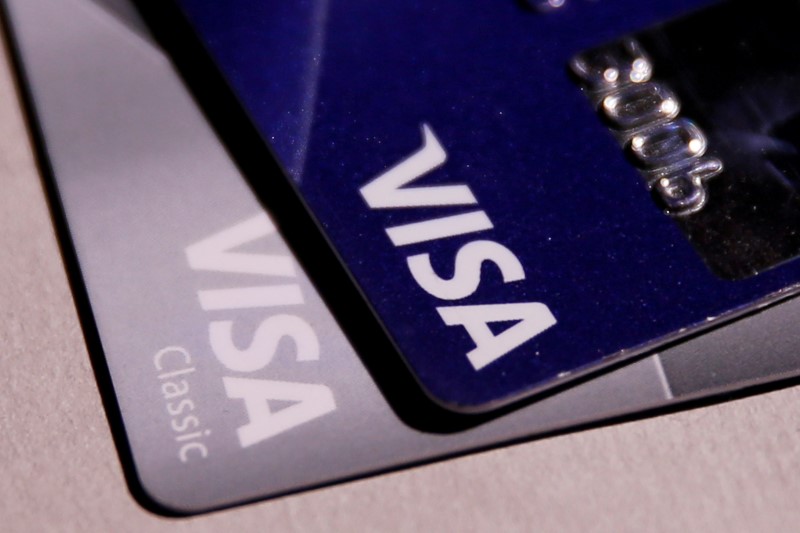This post was originally published on this site
https://i-invdn-com.investing.com/trkd-images/LYNXMPEJ3O0VA_L.jpg
The San Francisco-based payments processor’s shares, up 11% so far this year, rose another 2.4% in after-hours trading.
Card companies escaped the economic downturn of the last year unscathed even as a rampant inflation and rapid interest rate hikes came down heavily on several sectors that had flourished since the pandemic.
For several quarters, executives have also downplayed the turmoil in the economy that saw corporate earnings dwindle and thousands losing their jobs.
Balances on credit cards had surpassed pre-pandemic levels last year, according to New York Fed’s latest data, in a sign that consumers largely turned to credit cards as spending on travel and entertainment rebounded after the pandemic.
“While there is macroeconomic uncertainty, I feel confident in Visa’s ability to manage through changing environments,” Chief Executive Officer Ryan McInerney said in a statement.
Payment volumes for the three months ended March rose 10%, while cross-border volume excluding Europe, a measure of Visa’s revenue from international transactions, increased 32%.
That is a decline from 17% jump in payment volumes and 47% growth in cross-border volume, excluding Europe, from a year ago.
Financial conditions have tightened in the wake of the collapse of Silicon Valley Bank in California and Signature Bank (OTC:SBNY) in New York, with analysts worrying that households and small businesses could be impacted even though labor market and jobs remain tight.
Visa’s results follow peer American Express (NYSE:AXP) Inc, which stockpiled $1.1 billion to cover potential defaults and spent more on promotions, missing Wall Street estimates on Thursday.
On an adjusted basis, Visa earned $2.09 per share in the quarter ended March, exceeding analysts’ estimates of $1.99, according to data from Refinitiv IBES.

